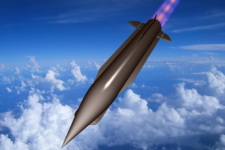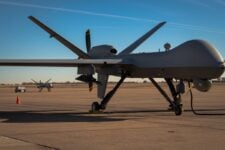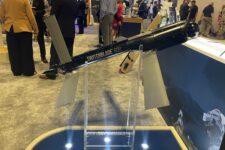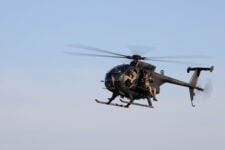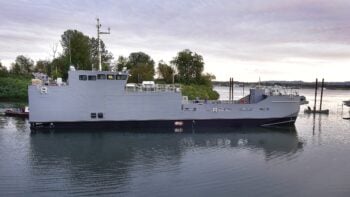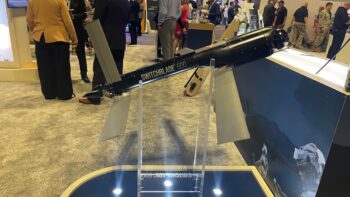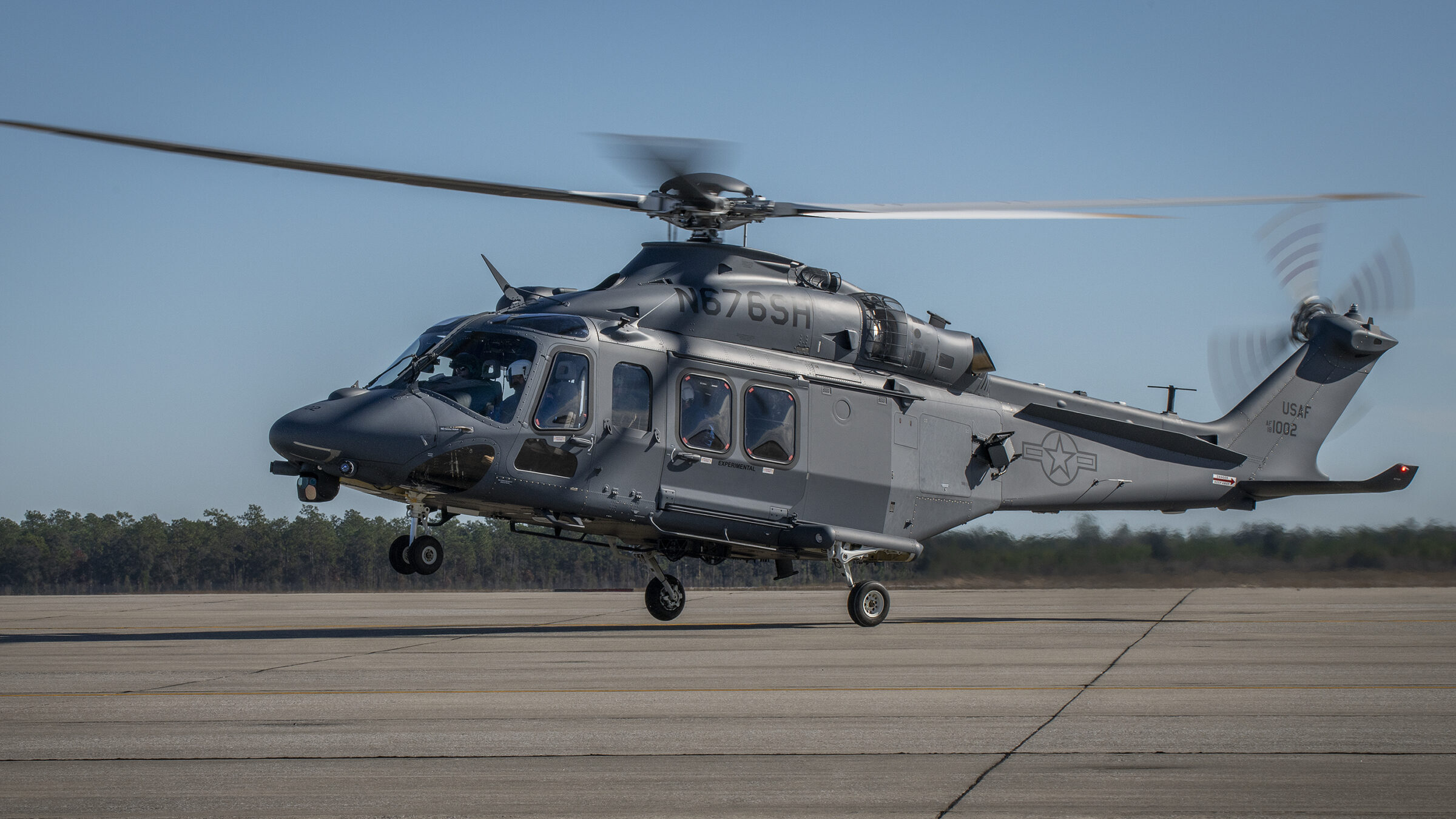
The MH-139A Grey Wolf lands at Duke Field, Fla., Dec. 19, 2019. (U.S. Air Force photo by Samuel King Jr.)
WASHINGTON — The Air Force’s move to halve the MH-139A Grey Wolf fleet in the service’s fiscal 2025 budget proposal has triggered a “critical” cost breach for the program, lawmakers and Air Force officials revealed today.
“Just last week, we were notified of a Nunn-McCurdy breach for the MH-139 Grey Wolf,” House Appropriations defense subcommittee chairman Ken Calvert, R-Calif., said in a hearing on Capitol Hill today. “This follows the [Sentinel ICBM’s] Nunn-McCurdy breach. We need to understand the implications of both of these breach reviews for fiscal year 25 and beyond,” he added.
The Air Force notified lawmakers of the breach on April 25, according to an Air Force spokesperson. The breach “is tied to the reduction in aircraft quantities in the program,” the spokesperson said, who noted that the regular Nunn-McCurdy process will be followed with the caveat that “statute does allow the Department of Defense to handle quantity-related breaches slightly differently.”
Grey Wolf manufacturer Boeing deferred comment to the Air Force.
The MH-139A is planned to recapitalize the service’s aging UH-1N Huey, which is primarily tasked with patrolling the service’s sprawling nuclear missile silos. On March 9, the service celebrated the arrival of the first operational Grey Wolf at Malmstrom Air Force Base.
Following the helo’s planned downsizing from 80 to 42 in the FY25 budget, the per-unit cost of the helos jumped since their overall price, including R&D, will be spread over fewer units. That’s in contrast to breaches driven by ballooning costs in stages like development or acquisition. In the case of the Grey Wolf, the Air Force plans to spend about $1.2 billion less on procurement for the program than previously planned.
It’s also not unusual for program cuts to trigger cost breaches. For example, the Air Force similarly moved to truncate the buy of the HH-60W Combat Rescue Helicopter, which caused a “significant” but not “critical” cost breach.
A significant breach requires a congressional notification, but a program can more or less continue as planned. A critical breach, however, prompts a review process led by the Office of the Secretary of Defense, which must certify a program for it to continue.
Following a congressional hearing earlier this year, Air Force acquisition chief Andrew Hunter told reporters that the service fully funded the Grey Wolf fleet destined for the nuclear protection mission, but budget constraints spurred officials to cut helicopters for other roles like transporting officials around the national capital region and conducting civilian search and rescue. Yesterday, Boeing announced an award for seven additional MH-139As, bringing the total on contract to 26.
The Nunn-McCurdy breach for the MH-139A is the second “critical” cost spike within a year for the Air Force, following a similar declaration for the service’s high-profile Sentinel nuclear ballistic missile program. And like the Sentinel, it’s unlikely that officials would take the unusual step of canceling the Grey Wolf program — both because the cost breach is a function of actually spending less on the helo than previously planned, and the critical role the MH-139A will play in patrolling nuclear silos.
Congress could further reject the Air Force’s planned cuts, or the service in future years could add helos back in. But unless and until either of those steps occur, the Department of the Air Force (DAF) will continue with the plan set in the FY25 budget.
“Since the FY25 PB [President’s budget] request is the DAF’s position until there is a FY25 Defense appropriation, the DAF is managing the MH-139A program according to that official position,” the Air Force spokesperson said.


